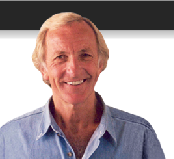In the news, whole countries are made to disappear. Saudi Arabia, the source of extremism and western-backed terror, is not a story, except when it drives down the price of oil. Yemen has endured 12 years of American drone attacks. Who knows? Who cares?
In 2009, the University of the West of England published the results of a 10-year study of the BBC's coverage of Venezuela. Of 304 broadcast reports, only three mentioned any of the positive policies introduced by the government of Hugo Chavez. The greatest literacy program in human history received barely a passing reference.
In Europe and the United States, millions of readers and viewers know next to nothing about the remarkable, life-giving changes implemented in Latin America, many of them inspired by Chavez. Like the BBC, the reports of the New York Times, the Washington Post, the Guardian and the rest of the respectable western media were notoriously in bad faith. Chavez was mocked even on his deathbed. How is this explained, I wonder, in schools of journalism?
Why are millions of people in Britain are persuaded that a collective punishment called "austerity" is necessary?
Following the economic crash in 2008, a rotten system was exposed. For a split second the banks were lined up as crooks with obligations to the public they had betrayed.
But within a few months -- apart from a few stones lobbed over excessive corporate "bonuses" -- the message changed. The mugshots of guilty bankers vanished from the tabloids and something called "austerity" became the burden of millions of ordinary people. Was there ever a sleight of hand as brazen?
Today, many of the premises of civilized life in Britain are being dismantled in order to pay back a fraudulent debt -- the debt of crooks. The "austerity" cuts are said to be $83 billion. That's almost exactly the amount of tax avoided by the same banks and by corporations like Amazon and Murdoch's News UK. Moreover, the crooked banks are given an annual subsidy of $100bn in free insurance and guarantees -- a figure that would fund the entire National Health Service.
The economic crisis is pure propaganda. Extreme policies now rule Britain, the United States, much of Europe, Canada and Australia. Who is standing up for the majority? Who is telling their story? Who's keeping record straight? Isn't that what journalists are meant to do?
In 1977, Carl Bernstein, of Watergate fame, revealed that more than 400 journalists and news executives worked for the CIA. They included journalists from the New York Times, Time and the TV networks. In 1991, Richard Norton Taylor of the Guardian revealed something similar in this country.
None of this is necessary today. I doubt that anyone paid the Washington Post and many other media outlets to accuse Edward Snowden of aiding terrorism. I doubt that anyone pays those who routinely smear Julian Assange -- though other rewards can be plentiful.
It's clear to me that the main reason Assange has attracted such venom, spite and jealously is that WikiLeaks tore down the facade of a corrupt political elite held aloft by journalists. In heralding an extraordinary era of disclosure, Assange made enemies by illuminating and shaming the media's gatekeepers, not least on the newspaper that published and appropriated his great scoop. He became not only a target, but a golden goose.
Lucrative book and Hollywood movie deals were struck and media careers launched or kick-started on the back of WikiLeaks and its founder. People have made big money, while WikiLeaks has struggled to survive.
None of this was mentioned in Stockholm on 1 December when the editor of the Guardian, Alan Rusbridger, shared with Edward Snowden the Right Livelihood Award, known as the alternative Nobel Peace Prize. What was shocking about this event was that Assange and WikiLeaks were airbrushed. They didn't exist. They were unpeople. No one spoke up for the man who pioneered digital whistleblowing and handed the Guardian one of the greatest scoops in history. Moreover, it was Assange and his WikiLeaks team who effectively -- and brilliantly -- rescued Edward Snowden in Hong Kong and sped him to safety. Not a word.
What made this censorship by omission so ironic and poignant and disgraceful was that the ceremony was held in the Swedish parliament -- whose craven silence on the Assange case has colluded with a grotesque miscarriage of justice in Stockholm.
"When the truth is replaced by silence," said the Soviet dissident Yevtushenko, "the silence is a lie."
It's this kind of silence we journalists need to break. We need to look in the mirror. We need to call to account an unaccountable media that services power and a psychosis that threatens world war.
(Note: You can view every article as one long page if you sign up as an Advocate Member, or higher).





